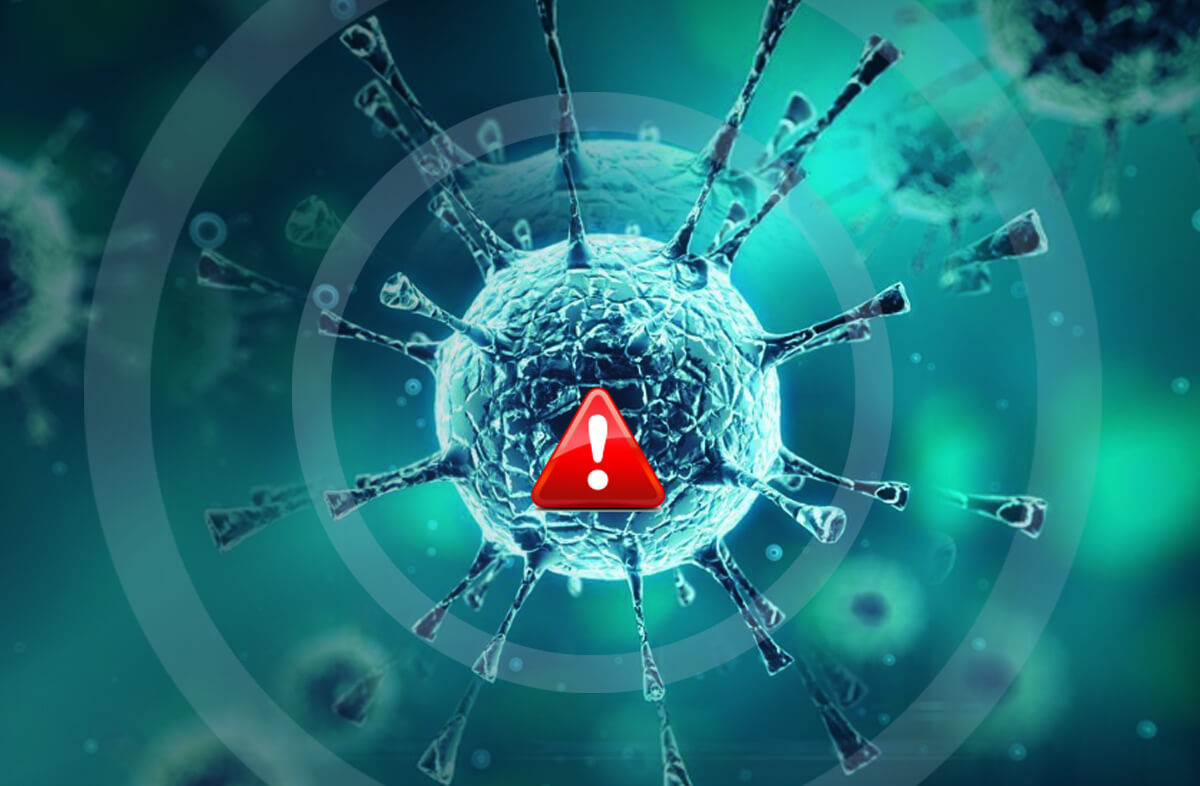There is a growing body of scientific and medical literature that suggests glutathione (GSH) may play a key role in immune health. The elderly, and those affected by chronic disease, especially the respiratory and immuno- compromised, seem to be most vulnerable to viral infections and complications. These people are well known to have lower than normal glutathione (GSH) levels leading to their cells and tissue is suffering from chronic oxidative stress [1-5].
Until the availability of gamma-glutamylcysteine (GGC) there was no effective way to significantly increase cellular glutathione (GSH) within hours [6]. Traditionally, supplements had to be taken daily for many months before even a slight increase in glutathione (GSH) could be seen. Therefore, it has been almost impossible to determine the effectiveness of glutathione (GSH) augmentation as an antiviral strategy. Studies with NAC and glutathione have only had limited success [7-11].
Much evidence has accumulated over the past decade suggesting that patients infected with viruses such as influenza are under chronic oxidative stress [12]. This is particularly concerning if you already have low glutathione (GSH). A viral infection could lower your glutathione (GSH) below a critical point where oxidative stress progressively leads to tissue damage and organ failure.
There is also evidence to support that increasing your glutathione (GSH) may act as a prophylactic to viral infection. A study published in 2003 [13] demonstrated that glutathione has anti-influenza properties. Many viruses, just like influenza, affect the oral, nasal, and upper airway and therefore lead to oxidative stress, or other conditions that deplete glutathione, increasing vulnerability to such viral infections.
Even though N-acetylcysteine has shown some improvement in influenza type symptoms, it did not seem to significantly affect the rate of infection [8]. This is hardly surprising, since N-acetylcysteine is not an effective way of increasing cellular glutathione (GSH) unless acutely depleted [14, 15]. Similarly, supplementation with glutathione itself is also futile.
Vitamin C is well known to be helpful in supporting recovery from viral infections. It is interesting to note that glutathione (GSH) is responsible for recycling cellular vitamin C and, in turn, vitamin C helps to lessen glutathione (GSH) depletion [16]. However, unlike gamma-glutamylcysteine (GGC), vitamin C is unable to increase cellular glutathione (GSH) [6].
References
- Teskey, G., et al., Glutathione as a Marker for Human Disease. Adv Clin Chem, 2018. 87: p. 141-159.
- Franco, R., et al., The central role of glutathione in the pathophysiology of human diseases. Archives Of Physiology And Biochemistry, 2007. 113(4-5): p. 234-258.
- Townsend, D.M., K.D. Tew, and H. Tapiero, The importance of glutathione in human disease. Biomedicine & Pharmacotherapy, 2003. 57(3-4): p. 145-55.
- Ballatori, N., et al., Glutathione dysregulation and the etiology and progression of human diseases. Biological Chemistry, 2009. 390(3): p. 191-214.
- Pérez, L.M., et al., Glutathione Serum Levels and Rate of Multimorbidity Development in Older Adults. The Journals of Gerontology: Series A, 2019.
- Zarka, M.H. and W.J. Bridge, Oral administration of γ-glutamylcysteine increases intracellular glutathione levels above homeostasis in a randomised human trial pilot study. Redox Biology, 2017. 11: p. 631-636.
- Sgarbanti, R., et al., Redox regulation of the influenza hemagglutinin maturation process: a new cell-mediated strategy for anti-influenza therapy. Antioxid Redox Signal, 2011. 15(3): p. 593-606.
- De Flora, S., C. Grassi, and L. Carati, Attenuation of influenza-like symptomatology and improvement of cell-mediated immunity with long-term N-acetylcysteine treatment. Eur Respir J, 1997. 10(7): p. 1535-41.
- Fraternale, A., et al., Antiviral and immunomodulatory properties of new pro-glutathione (GSH) molecules. Curr Med Chem, 2006. 13(15): p. 1749-55.
- Fraternale, A., et al., GSH and analogs in antiviral therapy. Mol Aspects Med, 2009. 30(1-2): p. 99-110.
- Uchide, N. and H. Toyoda, Antioxidant therapy as a potential approach to severe influenza-associated complications. Molecules, 2011. 16(3): p. 2032-52.
- Reshi, M.L., Y.C. Su, and J.R. Hong, RNA Viruses: ROS-Mediated Cell Death. Int J Cell Biol, 2014. 2014: p. 467452.
- Cai, J., et al., Inhibition of influenza infection by glutathione. Free Radical Biology & Medicine, 2003. 34(7): p. 928-936.
- Rushworth, G.F. and I.L. Megson, Existing and potential therapeutic uses for N-acetylcysteine: The need for conversion to intracellular glutathione for antioxidant benefits. Pharmacology & Therapeutics, 2014. 141(2): p. 150-159.
- Aitio, M.-L., N-acetylcysteine – passe-partout or much ado about nothing? British Journal of Clinical Pharmacology, 2006. 61(1): p. 5-15.
- Martensson, J. and A. Meister, Glutathione deficiency decreases tissue ascorbate levels in newborn rats: ascorbate spares glutathione and protects. Proc Natl Acad Sci U S A, 1991. 88(11): p. 4656-60.


Are you aware of any other sources for gamma-glutamylcysteine (GGC) ?
I found this source, but it was expensive! https://www.continualg.com/buy-now#buynow
Also, you mentioned that N-acetylcysteine can’t increase glutathione levels unless the person’s levels are depleted.
Several years ago I began supplementing with one 600mg capsule of N-Acetylcysteine daily because I had an elevated homocysteine level. Very quickly after supplementing in this manner, my homocysteine level dropped to well within the normal range. So most likely I had low glutathione levels prior to supplementation.
According to Dr. Alex Vasquez, N-acetylcysteine doesn’t prevent viral entry into the cell, but it prevents viral replication once the virus has entered the cell, and he shared a study of elderly nursing home patients who benefited from twice daily 600mg doses of N-Acetylcysteine in that they did not develop influenza infection.
Hi Siobhan
As far as we are aware the website address you gave is the only supplier of supplemental gamma-glutamylcysteine in the world. Regarding your question on NAC please see our article on why NAC cannot increase cellular glutathione levels https://www.glutathionereporter.com/n-acetylcysteine-nac-cannot-increase-cellular-glutathione-levels/